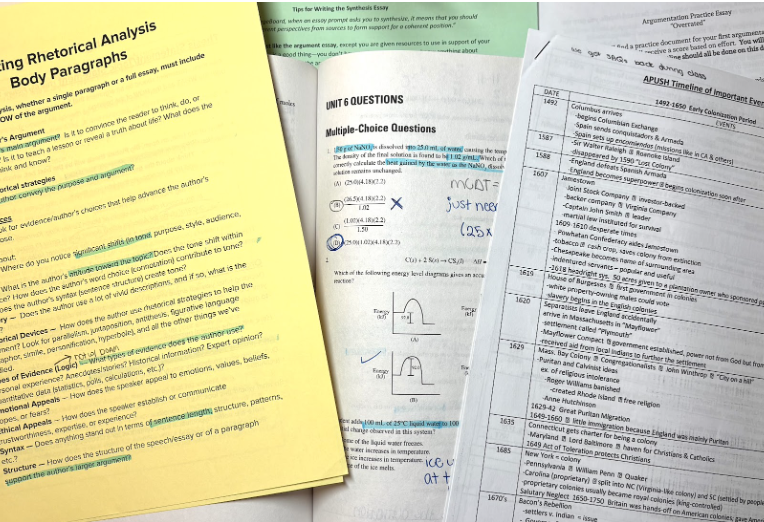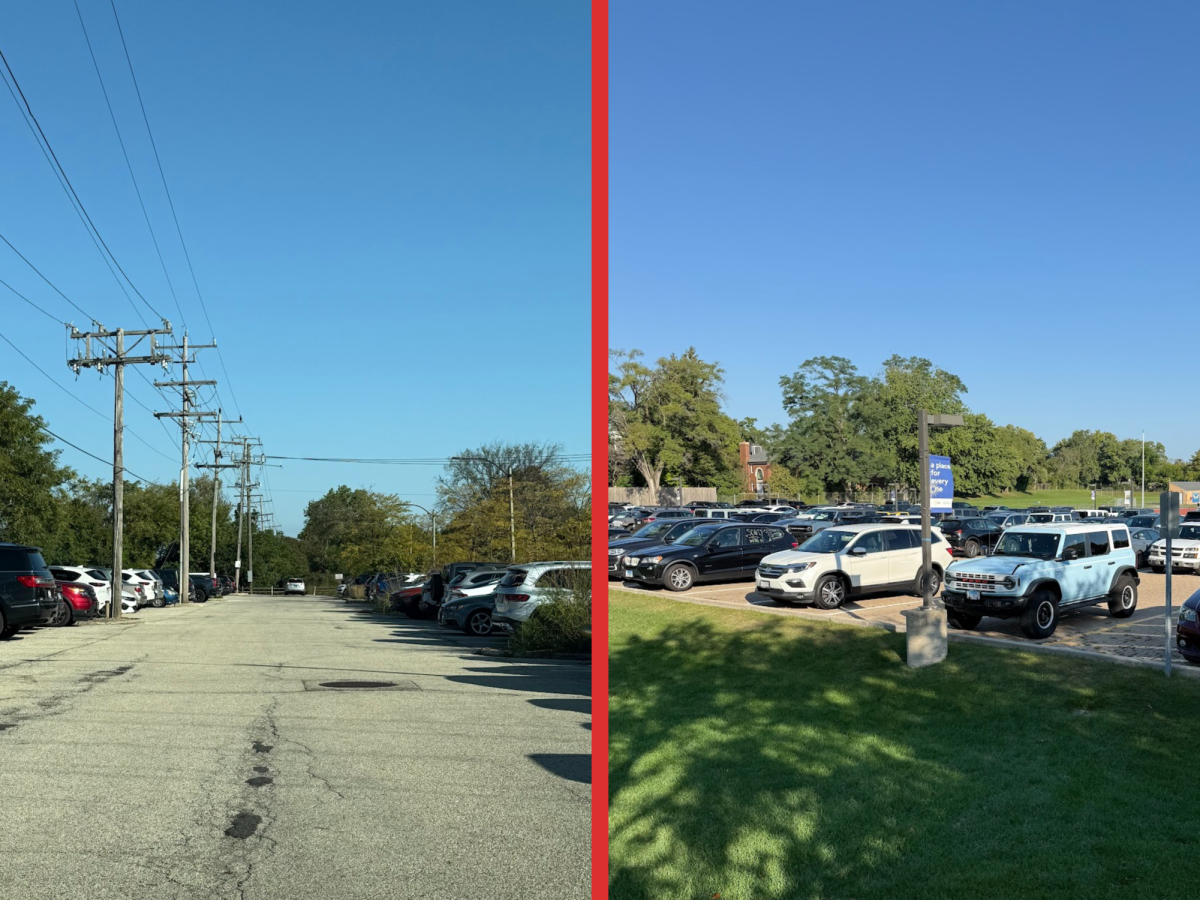Many students return from spring break relaxed, tan, and excited for summer. However, once re-entering the building, they are confronted with an extreme workload that only the months of April and May can bring. Not only do students have to complete their normal schoolwork, but they must also juggle studying for impending AP exams. Finding the time and motivation to study can be difficult and stressful, so I’ve found ways to make the process as efficient and painless as I can; I thought I’d pass them along.
Tip #1: Don’t study everyday.
Yes, it seems counterintuitive. Every year it is preached to students to spread out their studying every day over a long period of time. While it is a smart idea to not cram all the information into your head over a few days, I personally do not find it effective to study everyday. According to the University of Pennsylvania, “sleep improves memory retention and recall by between 20 and 40 percent.” If a student is studying but feels tired, it’s best to go to bed and catch up on sleep so they can do quality work the next day.
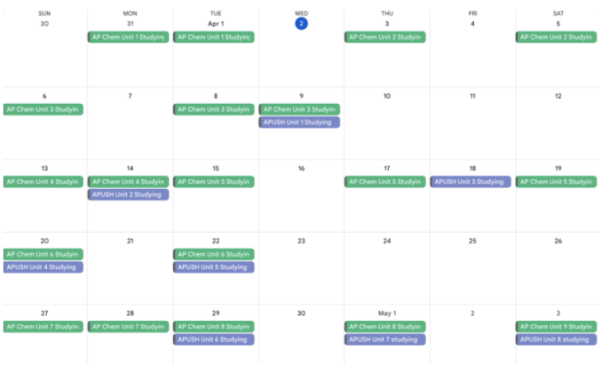
It is also an advantageous idea to create a study plan around your schedule. I play a spring sport and sometimes we have games that finish late in the evening. Due to this, I formed my study schedule around the days I have games so I wouldn’t be studying late into the night and be tired the next day. I use the google calendar to do this; I can color code my classes to better visualize the subjects I’m studying each night. Creating a schedule also holds me accountable for my responsibilities; I know exactly what content I have to study each night.
Tip #2: Use Knowt.
Last year, I discovered the AP studying jackpot: “Knowt.” Before finding the website, I would often hand write note guides, and the process was very time consuming. Thankfully, Knowt offers free note guides, flashcards, and practice tests for every AP course. You can simply click on the link for a class and use the resources to your advantage.
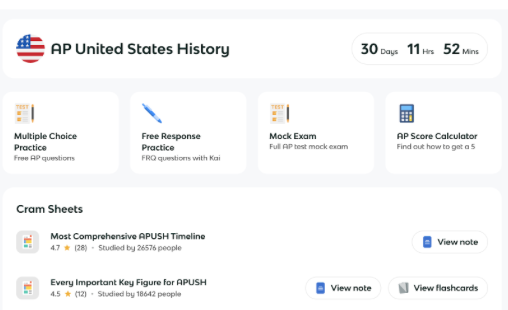
I use knowt to see what I still have to learn in each unit. To do this, first I look through the note guide for each unit (one unit a day) and screenshot the sections I don’t remember learning and/or I don’t understand. Next, I put those screenshots into a google doc and study that information until I know it. I find that this is a quick and effective way to discover what you don’t know and learn that content. Additionally, it doesn’t take much time or effort, which is a bonus.
Tip #3: Study the test, not just the content.
It’s important to familiarize yourself with the rubrics and format of your tests so that you can earn as many points as you can. For example, let’s say you’re writing a Document Based Question (DBQ) and have no idea how to answer the prompt. If you remember that you can earn points for simply writing a thesis and interpreting the evidence you’re given, then you’ve already earned three out of the seven points.
Moreover, it’s helpful to become comfortable with the style of questions AP asks on the exams. Junior Gonzalo Zarazaga finds it helpful to answer questions from past AP tests or test prep books to prepare.
“The key for me is to do a lot of practice tests because you get a feel for what the actual exam will be like and the content that you’re required to know,” said Zarazaga.
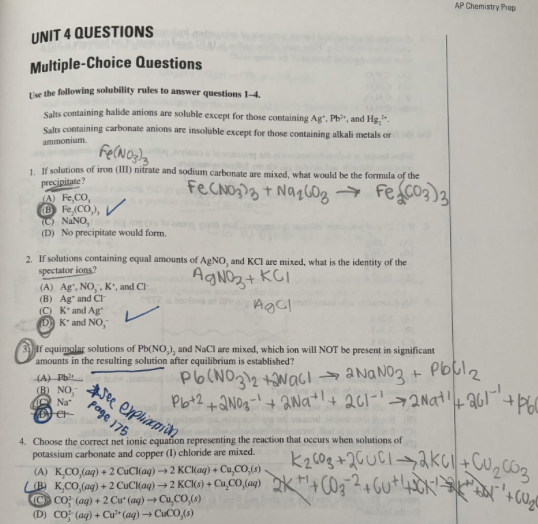
Some AP classes give out Princeton Review books for free at the beginning of the school year. These books summarize content from the course and offer practice multiple choice questions (MCQs) and FRQs for each unit. If you’re interested in buying a book, they are available for around 18 dollars.
Reading past AP prompts is also an excellent way to become comfortable with the types of questions AP tends to ask. You can also view the rubrics for each FRQ, responses from students, and how their response was graded.
Tip #4: Use Active Recall
Junior Charlotte McEvoy swears by her preferred study method—active recall—to prepare for her exams.
“You write some information down on your paper and then turn it over. After, you try to remember exactly what you wrote and say the information out loud,” said McEvoy.
Active recall is helpful because it improves your long-term memory. When you perform active recall, you are testing your brain’s ability to remember certain, specific information. In a study performed by psychologist Henry L Roediger, testing your memory frequently helps your brain recall more information accurately over a longer period of time—such as when you need to remember it during an AP test.
Handwriting your notes also increases your memory retention. According to Scientific American, several studies discovered that humans use motor skills in their brains while handwriting notes; this brain activity strengthens one’s memory of what they’re writing.
You can also use a whiteboard to write your notes! I find that writing on whiteboards can sometimes make studying more fun because you typically don’t use them every day in school or while studying. You can also then draw visual representations of what you’re learning; this helps me better understand the concepts.
Tip #5: Ask your AP teachers for their advice
Teachers for AP classes have typically been teaching their courses for many years, and they know how to best prepare students for success on the exam. Some teachers even provide their students with study schedules and guides without being asked.
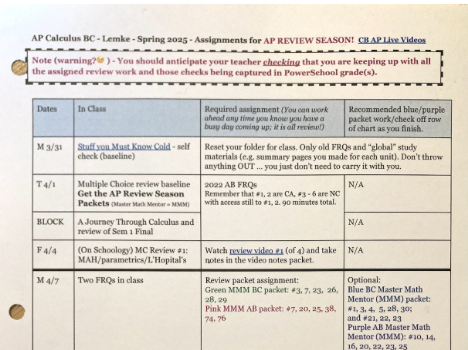
However, if your teacher doesn’t do this, it’s a helpful idea to ask them for advice on how to best prepare for a specific exam. They know what content students struggle most with, so they know what to recommend students study, along with how to best study it.
Good luck to everyone enduring AP studying this spring. The study process is grueling, but using these tips should help lead you to success!

